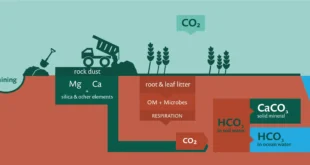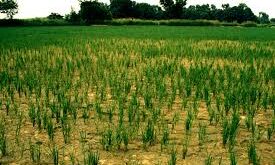The Union Minister for Health and Family Welfare virtually attended the World Food Safety Day (7th June) celebrations organized by Food Safety and Standards Authority of India (FSSAI)
Important points:
- The World Health Organization (WHO) and the Food and Agriculture Organization of the United Nations (FAO) jointly facilitate the observance of World Food Safety Day, in collaboration with Member States and other relevant organizations.
- It was first celebrated in 2019, to strengthen the commitment to scale up food safety made by the Addis Ababa Conference and the Geneva Forum in 2019 under the umbrella of “The Future of Food Safety”.
- To draw attention and inspire action to help prevent, detect and manage foodborne risks, contributing to food security, human health, economic prosperity, agriculture, market access, tourism and sustainable development
- Safe Food for a Healthy Tomorrow.
Importance:
- Access to sufficient amounts of safe food is key to sustaining life and promoting good health.
- Foodborne illnesses are usually infectious or toxic in nature and often invisible to the plain eye, caused by bacteria, viruses, parasites or chemical substances entering the body through contaminated food or water.
- An estimated 4,20,000 people around the world die every year after eating contaminated food and children under 5 years of age carry 40% of the foodborne disease burden, with 1,25, 000 deaths every year.
- Food safety has a critical role in assuring that food stays safe at every stage of the food chain – from production to harvest, processing, storage, distribution, all the way to preparation and consumption.
- Food production is responsible for up to 30% of global greenhouse-gas emissions contributing to global warming.
- Global food waste accounts for 6.7% of global greenhouse gas emissions, directly leading to climate change.
State Food Safety Index :
- FSSAI has developed the State Food Safety Index (SFSI) to measure the performance of States on five parameters of food safety.
- The parameters include Human Resources and Institutional Arrangements, Compliance, Food Testing- Infrastructure and Surveillance, Training and Capacity Building and Consumer Empowerment.
Food Safety and Standards Authority of India (FSSAI)
- FSSAI is an autonomous statutory body established under the Food Safety and Standards Act, 2006 (FSS Act).
- It has its headquarter in Delhi and its administrative Ministry is Ministry of Health & Family Welfare.
- Framing of regulations to lay down the standards and guidelines of food safety.
- Granting FSSAI food safety license and certification for food businesses.
- Laying down procedure and guidelines for laboratories in food businesses.
- To provide suggestions to the government in framing the policies.
- To collect data regarding contaminants in foods products, identification of emerging risks and introduction of a rapid alert system.
- Creating an information network across the country about food safety.
SOURCE: THE HINDU,THE ECONOMIC TIMES ,MINT
 Chinmaya IAS Academy – Current Affairs Chinmaya IAS Academy – Current Affairs
Chinmaya IAS Academy – Current Affairs Chinmaya IAS Academy – Current Affairs



